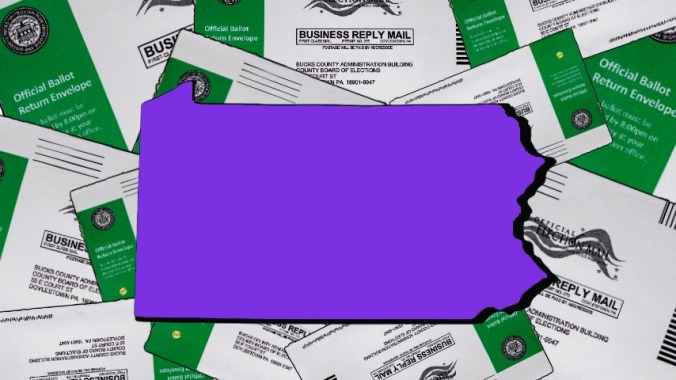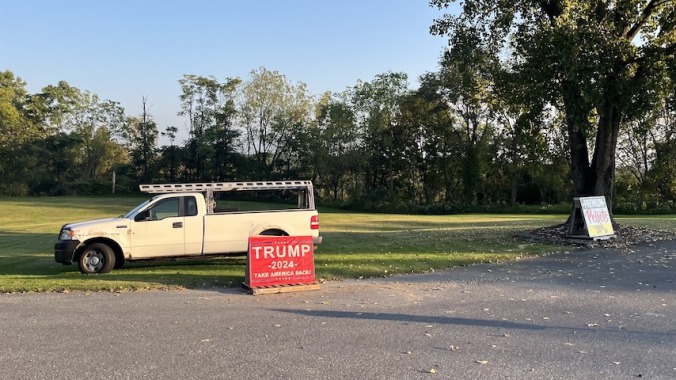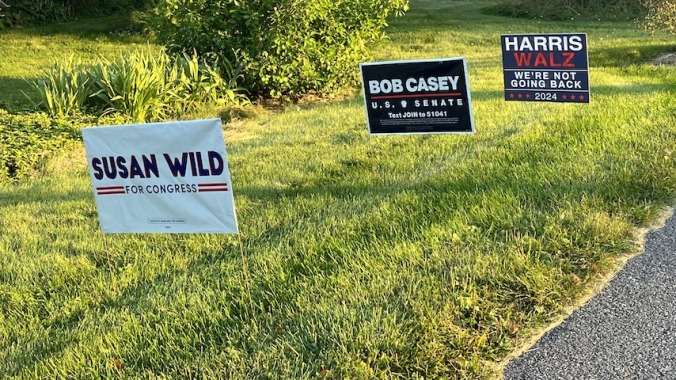Pennsylvania Is Going to Make Us All Sweat Once Again
The presidential election could come down to the Keystone State, which still bans poll workers from processing mail-in ballots until Election Day. Get ready for another 2020-style “election week.”
Photo: Getty Images Art: Jezebel Politics 2024 Election
In the final weeks of the 2024 campaign, a ton of attention will be focused on my home state of Pennsylvania—and rightly so. The swing state has outsized importance in determining who wins the presidency, and it also has a crucial Senate race this year.
Four years ago, during the height of the pandemic, all eyes were on Philadelphia as election workers spent days dutifully counting a flood of mail-in ballots since 375,000 people voted absentee, versus just 6,000 in 2016. The presidential race wasn’t called until Pennsylvania finally determined that Joe Biden won the state and had clinched the Electoral College—which was the Saturday morning after Election Day. Cable networks memorably called the election while Rudy Giuliani was in the middle of a surreal press conference in the parking lot of Four Seasons Total Landscaping in Philadelphia, not the Four Seasons Hotel.
Election Day turned into “election week.” It was a very sweaty, sleepless, and carb-heavy time for people and I’m here to inform you that it could happen again.
That multi-day delay was the result of a Pennsylvania law that prohibits election workers from opening and processing mail-in ballots until 7 a.m. on Election Day, even if they’ve been sitting around for weeks. State lawmakers have had plenty of time to fix this problem, but they’ve chosen not to, partly because the Republican lawmakers and operatives can use the lag to sow doubt in elections and let conspiracy theories fester.
It works like this: Since Democrats are more likely to vote by mail and Republicans are more likely to vote in person, results coming in from ballot scanners on election night could show a temporary, misleading advantage for the GOP. Based on this so-called “red mirage,” a lying sack of shit like Donald Trump could declare victory before every ballot is counted and then file lawsuits and foment violence.
Seth Bluestein, a Republican city commissioner in Philadelphia who helped oversee the 2020 vote, told the Washington Post that he and his colleagues worked in the city’s convention center around the clock with pro-Trump protestors outside. He said they received death threats and had hoped the state would change the law. “That larger window of time when the final result is not known—that is where a lot of this harassment and threat environment can come about,” Bluestein said. “If we had pre-canvassing, it would really limit that window of opportunity for the spread of mis- and disinformation.”

-

-

-

-

-

-

-

-

-

-

-

-

-

-

-

-

-

-

-

-

-

-

-

-

-

-

-

-

-

-

-

-

-

-

-

-

-

-

-

-









































